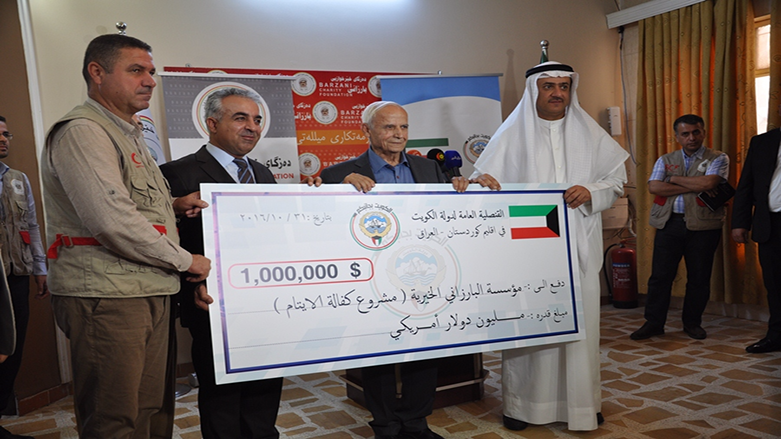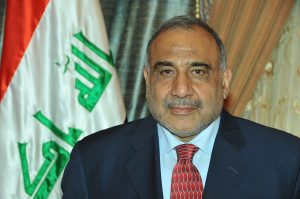by Giorgio Cafiero and Jesse Schatz
The unresolved Kurdish question remains a highly influential dynamic in the Middle East’s geopolitical order. Recent developments in Iraqi and Syrian Kurdistan are significantly contributing to regional realignments involving Iran and Turkey—both heavily invested in the preservation of Iraq’s territorial integrity largely due to implications for their countries’ Kurdish minorities. Syrian Kurdish aspirations for autonomy—if not independence—in Rojava also raise the specter of a rapprochement between Turkey and Syria.
Although not bordering land governed by the Kurdistan Regional Government (KRG), Kuwait is another Iraqi neighbor with high stakes in the country’s internal challenges.
Following Iraqi Kurdistan’s recent referendum, in which voters overwhelmingly endorsed the idea of Kurdish independence in northern Iraq, Kuwaiti officials were quick to offer support to Baghdad. Below the surface, however, Kuwait’s outlook is complicated. On one hand, Kuwaiti officials were alarmed by the potential for the referendum to collapse the Iraqi state, which could further destabilize the entire region. Yet on the other hand, more Kurdish autonomy—if not total independence—may offer Kuwait a safeguard against the emergence of a highly powerful and centralized Iraq, one emboldened enough to revive its claims to Kuwait as a stolen Iraqi province.
Kuwait and Iraq have indeed moved beyond the latter’s 1990/1991 invasion and occupation of the former. Just this past month Kuwait’s envoy to the United Nations asked the body to grant Iraq a clemency period as Baghdad still struggles to pay back the $4.6 billion it owes Kuwait as a result of the invasion. The head of Kuwait’s Compensation Claims Commission, Khaled al-Mudhaf, said that “Kuwait is determined to reach an agreement with the Iraqi Government on the payment of the remaining compensation.” Baghdad and Kuwait subsequently announced plans to work together on a gas pipeline that would give Kuwait a non-Qatari source of gas in exchange for a reduction in the reparations bill. Having become a net importer of gas in April, Kuwait is now increasingly dependent on foreign supplies to meet domestic demand in light of the Ahmadi and Mina Abdullah refineries lacking sufficient refining capacity.
Kuwait’s patience more than 25 years after the invasion speaks to how inextricably linked its future is to a successful Iraqi state. This is nowhere more apparent than Kuwait’s recent commitment to host a conference on the rebuilding of post-Islamic State Iraq in early 2018.
Given its history of leniency with Iraq, Kuwait’s official response to the results of the Kurdish referendum was unsurprising. Deputy Foreign Minister Khaled al-Jarallah stated, “We hope that the referendum would neither breach Iraq’s constitution and unity, nor damage the relations between Baghdad and Erbil.” And yet Kuwait has been quietly building a network of relations with the KRG over the years as a bulwark against an ascendant Iraq.
Like other Gulf Cooperation Council (GCC) members—namely the United Arab Emirates (UAE)— Kuwait has invested upwards of $2 billion in Iraqi Kurdistan, including investments in oil and tourist attractions. Additionally, in 2015 Kuwait established a consulate general in Erbil, which reciprocated in allowing Kuwaiti citizens non-visa entry to Iraqi Kurdistan. Kuwait-KRG relations improved further in September when a Kuwaiti envoy met with the KRG’s prime minister in Iraqi Kurdistan, where the two promised to increase bilateral cooperation.
But Kuwait must also take into consideration Turkey’s concerns about the unresolved Kurdish issue in Iraq and elsewhere. At the same time, with Kuwaiti officials alarmed by Iran’s extended influence across the Arab world, the emergence of a pro-Western Sunni-majority state on Iran’s western border may appear as an opportune bulwark against Tehran’s regional foreign policy.
Ultimately, tensions between Iraq’s central government and the Kurdish minority require Kuwait to carefully navigate the regional variables surrounding the idea of an independent Kurdish state. Kuwait has vested interests in Iraq’s stability. Yet Kuwaiti authorities do not want a successful Iraqi state to one day re-emerge as an aggressor. As such, Kuwait continues to want it both ways—a unified Iraq but not too powerful, an autonomous Kurdistan but not necessarily an independent one.
Jesse Schatz is a contributor to Gulf State Analytics (@GulfStateAnalyt), a Washington, DC-based geopolitical risk consultancy. Photo: Kuwait donates $1 million to orphans in Kurdistan (Barzani Charity Foundation)





